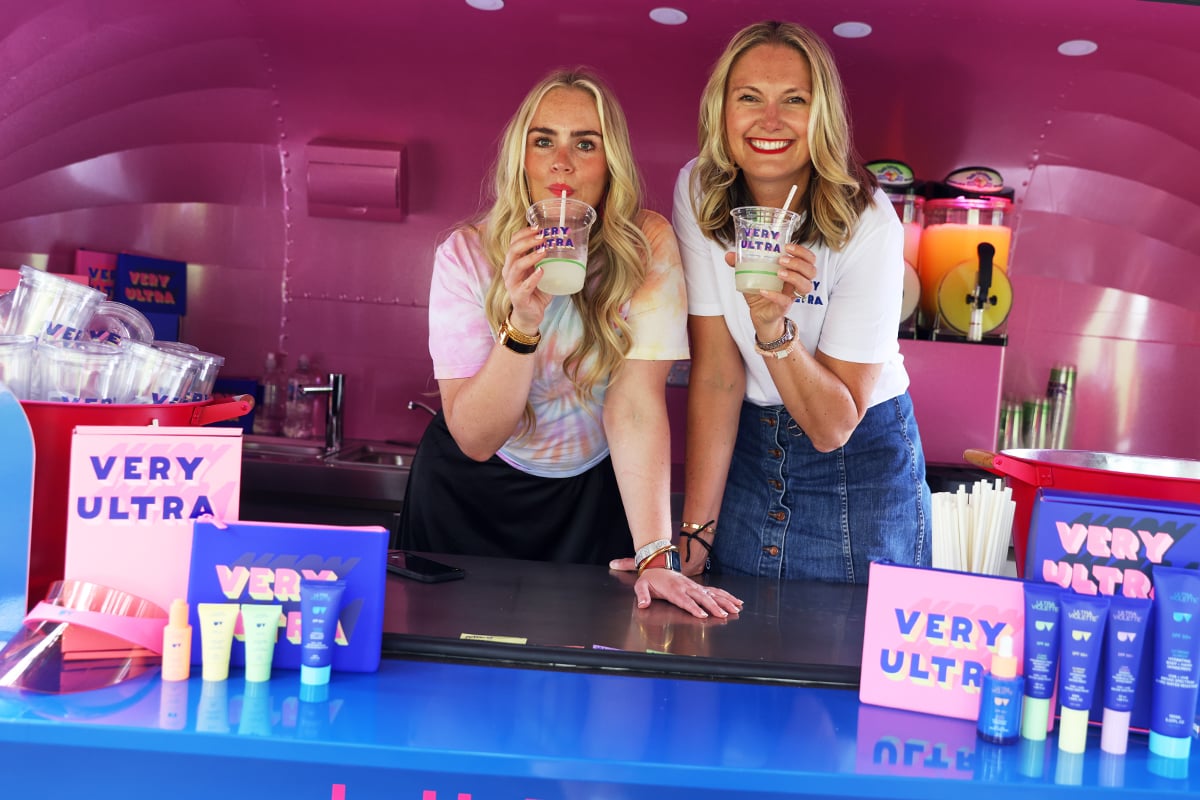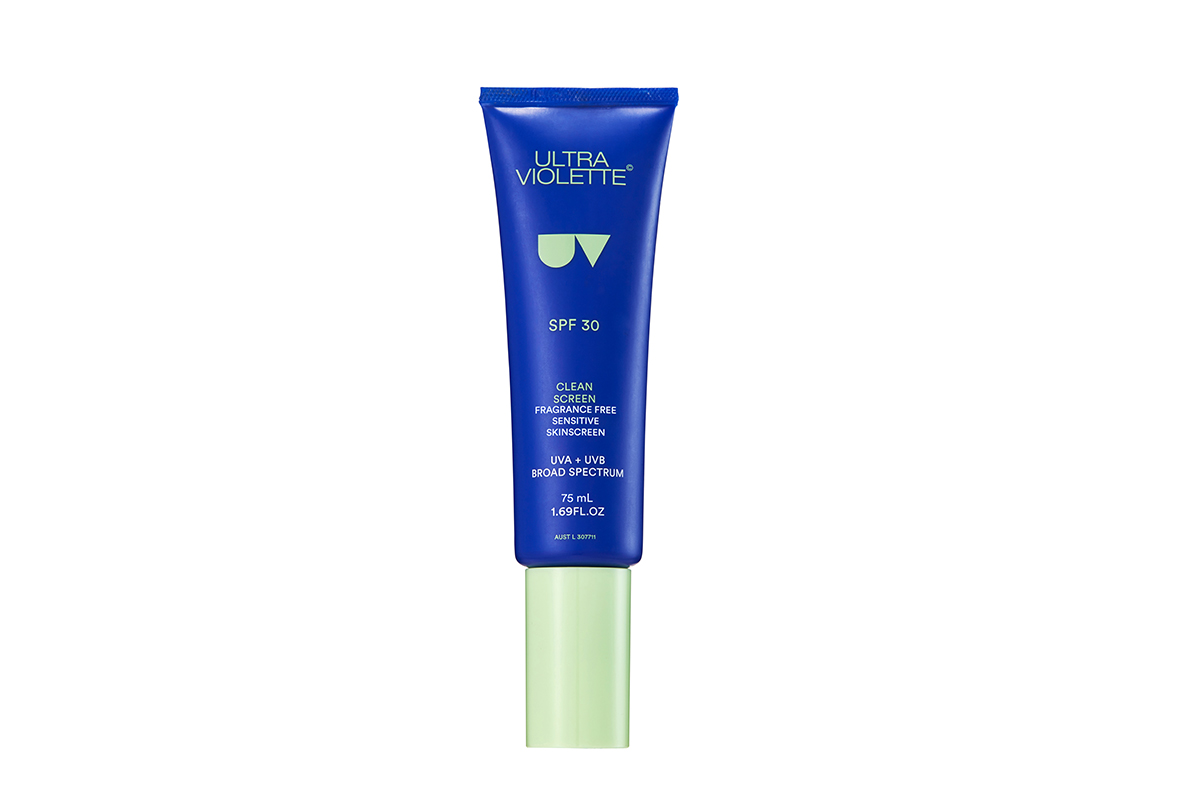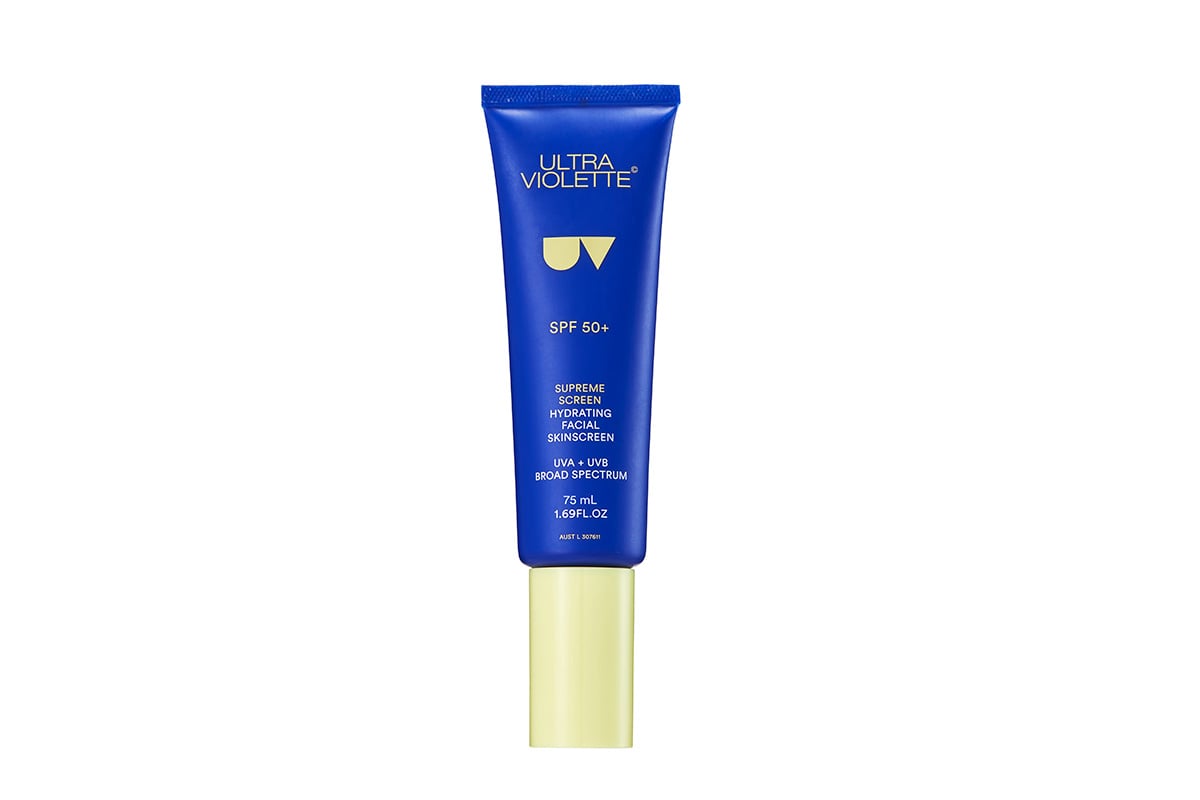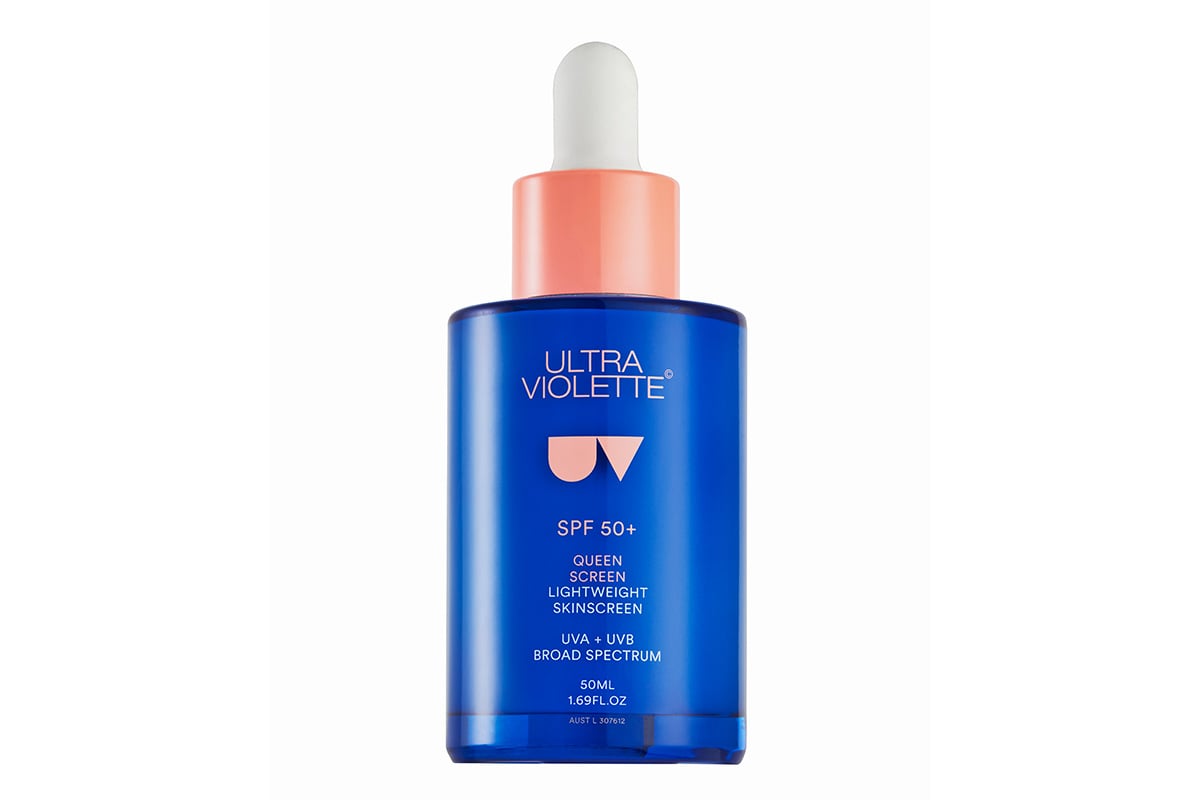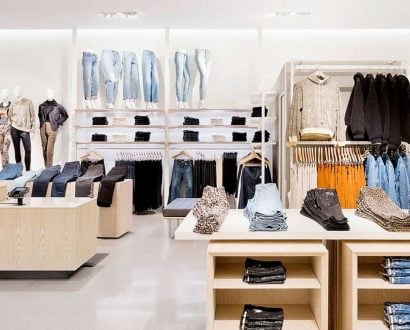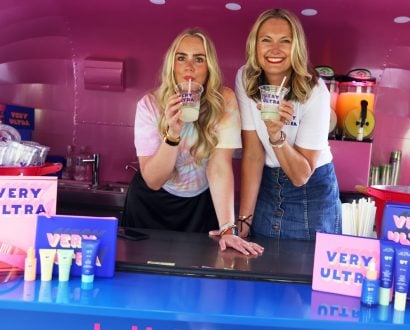Ultra Violette Co-Founders, Rebecca Jefferd and Ava Chandler-Matthews, are on a mission.
They’re convinced that launching a global sunscreen brand today is a path worth carefully considering, particularly in light of the global regulatory environment – with Australia easily taking the top spot when it comes to meeting the stringent criteria laid down by the Therapeutic Goods Administration (TGA).
Nevertheless, Jefferd and Chandler-Matthews took it upon themselves to formulate and position their high-performance sunscreens, or SKINSCREENS, as a skincare product. They spotted this opportunity in mid-2016 and decided to capitalize on it at a time when suncare was still in the tanning aisle in most chemists across the nation.
“We’ve taken two steps and it made it one. We’ve put a lot of skincare actives [active ingredients] in a suncare product,” explains Chandler-Matthews. “So, you’re not only getting SPF 50-plus protection, you’re getting vitamin C and other antioxidant protection. You’re also getting hydration and, on top of that, our products are made in Australia, which is the hardest place in the world to get a sunscreen passed.”
Thinking globally from the start
The enterprising duo met while working for Australia and New Zealand cosmetics empire, Mecca. This gave them a unique overview of the entire beauty landscape, including product development, which in the overly competitive realm of ecommerce, plays a vital role in providing the customer with ample choice and satisfying their appetite for variety.
“We have a pipeline of new products and we’ve got two really exciting launches in the next 12 months that are going to add to our wardrobe of choices,” explains Jefferd.
As consumers, we’re all too familiar with the rush of excitement we experience when our favorite brand has been working diligently behind the scenes to deliver a product that stands out from the crowd or exceeds our expectations.
With this in mind, the Co-Founders’ export strategy is guided by the regulatory environment of the markets in which they want to operate. Regulatory bodies in Europe and South–East Asia, for instance, are not dissimilar to the TGA, which makes for an ideal fit.
“Australia’s regulatory environment, which is managed by their TGA, is closest to Europe and South–East Asia. They have the same filters that we approve of in the same dosages. So, it’s a really easy market choice for us,” Jefferd says.
She also points out that tweaking the formulations will be necessary to conquer certain markets, like the United States, where newer SPF filters are unlikely to receive the green light.
“There are a lot of brands popping up now that we know have just gone to contract manufacturers, taken their standard formulation and shoved it in some packaging.” – Rebecca Jefferd
Chandler-Matthews reveals how their startup managed to enter the international stage after just three-and-a-half years of being in business. She specifically highlights the value of being strategic in selecting early partnerships.
“Having a relationship with Sephora in Australia makes it easier to go international through them. And we were very strategic with choosing them as a retail partner in the beginning, because they have that global presence and global network,” she says.
However, to lead with a great product alone isn’t enough to keep consumers interested for very long, which is why the Co-Founders have built credibility into the DNA of the brand – with TGA-listed products that have attracted great buy-ins from both beauty and key opinion leaders in the science space, including dermatologists and medical practitioners.
“We’re a TGA-listed product and we’re a medical product. So, having both helps build credibility and drive awareness,” says Chandler-Matthews. “Having the visibility of big influencers who might be more in the beauty space and less credible from a science perspective and also having that kind of science and medical element layered upon that helps build the credibility of the brand – showing that we’re not just a flash in the pan.”
Inclusivity and education: A winning combination
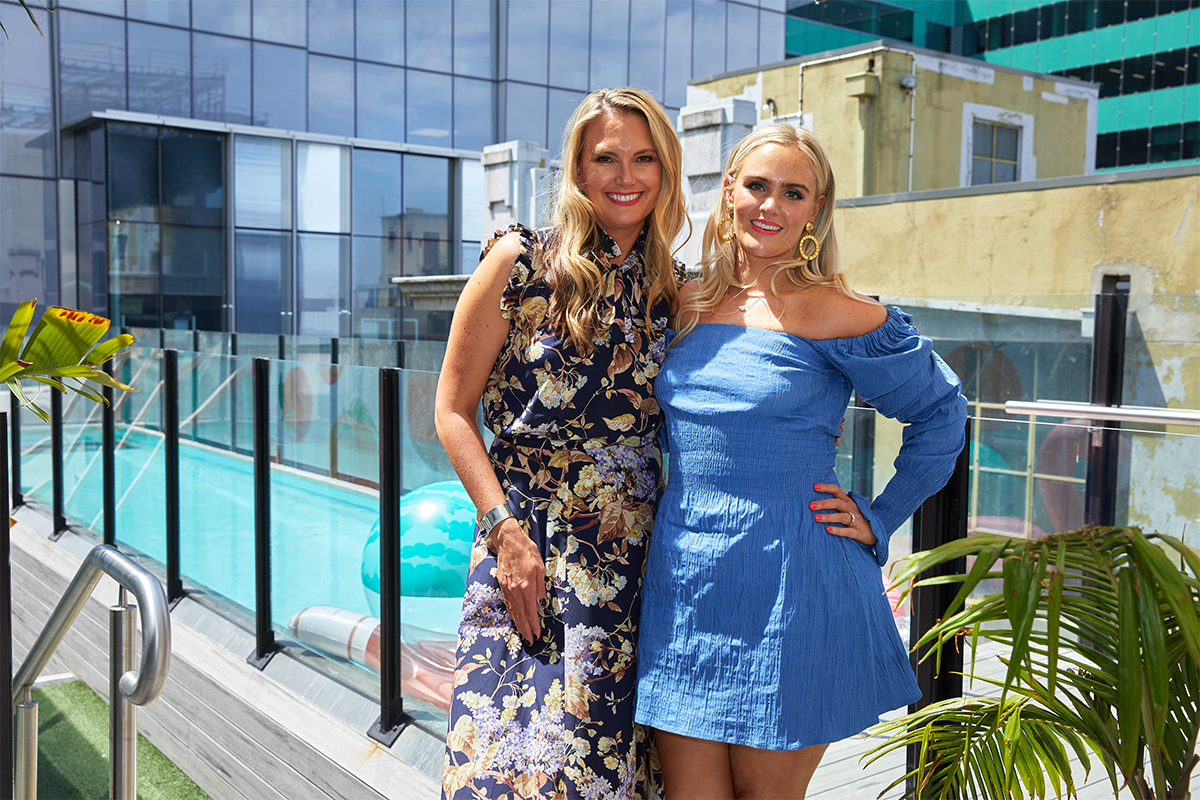
With competition intensifying, customer education coupled with providing a combination of online and offline channels are high priorities for a startup whose mission is to become the largest global premium SPF brand.
“We took a lot of time and used advanced filters and thought about the aesthetics and the feel of our products in a very thoughtful way,” Jefferd affirms. “There are a lot of brands popping up now that we know have just gone to contract manufacturers, taken their standard formulation and shoved it in some packaging.”
The good news for consumers is that the brand’s SPF filters are more aesthetically pleasing and suitable for reactive skin – both highly desirable qualities for a product we’re told we should apply to our faces daily.
“They’re not as greasy or as thick, which also makes them something more akin to skincare products that can be used with other skincare actives, which is what we’ve done,” explains Jefferd.
“We’re a TGA-listed product and we’re a medical product. So, having both helps build credibility and drive awareness.” – Ava Chandler-Matthews
As a newly established digital-first brand that was forced to adjust to the fluctuations of the COVID-19 pandemic, Ultra Violette’s Co-Founders discovered that this situation surprisingly worked in their favor.
“We didn’t have a lot of fixed overheads,” Jefferd reflects. “We weren’t used to a massive amount of distribution through brick-and-mortar stores, so we didn’t know what we missed, really. We just cracked on and kept doing what we were doing and used this as an opportunity to expand our networks.”
Jefferd believes these efforts planted the seed for global expansion and securing fruitful partnerships.
Today, Ultra Violette’s products are stocked in premium in-store and online retailers, giving its loyal followers the convenience of purchasing from the comfort of their own home while skeptics can trial a product or two at Sephora stores in Australia and South–East Asia or at Space NK, Liberty or Harrods in the United Kingdom.
“We’re definitely seeing the trend towards shopping in-store increase significantly,” says Chandler-Matthews. “At the moment, we’re in Sephora Europe online and the plan will be for us to go in-store next year.”
And, while the fast-growing startup is now riding the wave of success that comes with good timing and making strategic decisions, it isn’t always smooth sailing.
“You don’t spot a new category like we’ve done in the beauty industry and get free rein on that for more than a couple of years. So, our challenge now is to help the consumer understand the difference between our brand and other brands,” says Jefferd.
Setting a high standard
Ingredient superstars:
Kakadu Plum: This native Australian plant is packed with vitamin C. It has a hydrating and brightening effect on the skin.
Dragosine: This powerful active has antioxidant properties. It prevents both hyperpigmentation and oxidative damage to the skin.
Pentavitin: This plant extract has hydrating properties. It protects against moisture loss while improving the skin’s barrier.
With its bright, eye-catching packaging that playfully hints at pastel-colored zinc sticks of the past, Jefferd explains that Ultra Violette has a distinct tone of voice in the market.
“We’re not a discount brand and a lot of brands chase growth through discounting and trying to force a sale to get growth numbers. We would never, ever do that. We’re driven just by putting a product in the right place and having the right products for people there,” she insists.
Reflecting on the past few years, Jefferd tells The CEO Magazine that, while starting your own business as a female founder can be daunting, finding a support network can go a long way towards lightening your load and mastering new skills.
“We’ve got a great network of other female CEOs that support us and we support each other and it feels like a really good time to be a female founder in business because, whilst there are definitely still obstacles out there, I feel really it’s important that we support other female founders,” she shares.
With a pipeline of new products set to grow Ultra Violette’s wardrobe of options for every skin type and plans to expand into the Middle East and other parts of Asia, it’s clear that making the decision to invest in high-quality ingredients set the company up for success and defined its position in the market.
“We didn’t want price to be a determining factor of where we started our formulating. We wanted to formulate with the best possible outcome and that then put us in the prestige beauty space,” Jefferd says.

